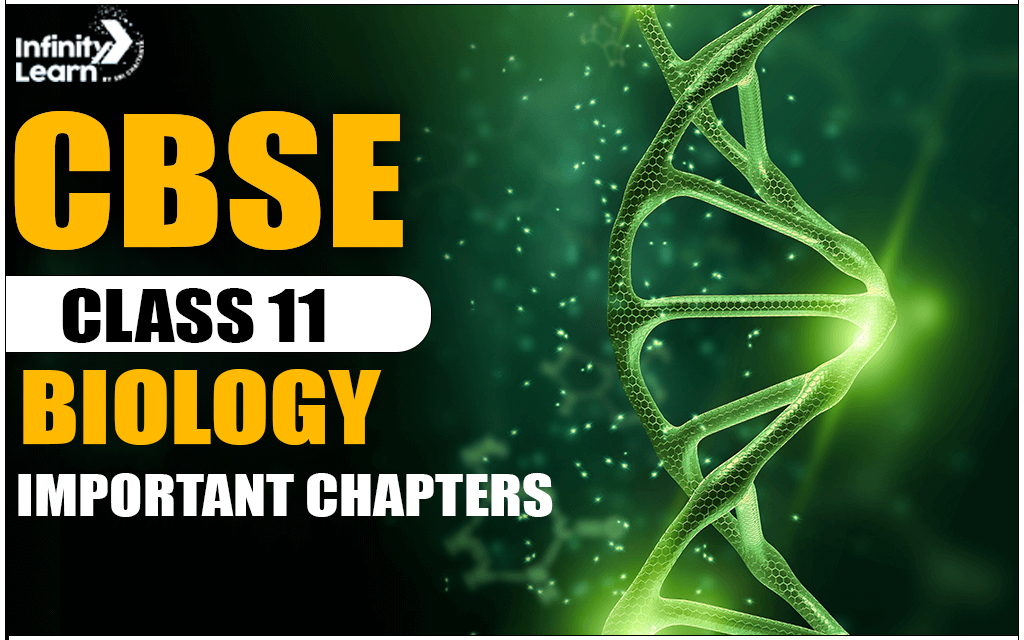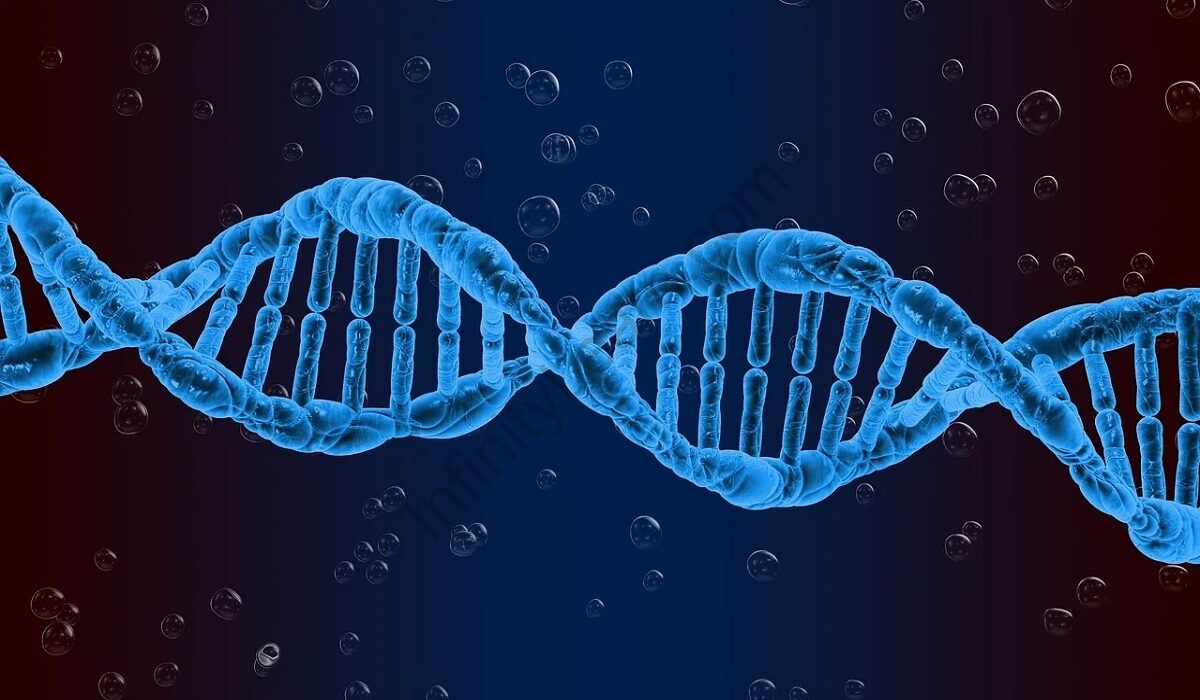Table of Contents
In CBSE Class 11 Biology, several chapters lay the foundation for understanding complex biological concepts essential for the NEET exam. Some crucial chapters include “Cell: The Unit of Life,” which explores the structural and functional aspects of cells, fundamental to understanding life processes. “Biomolecules” introduces students to the diverse molecules essential for life, such as carbohydrates, proteins, and nucleic acids. “Plant Physiology” delves into the physiological processes of plants, while “Human Physiology” provides an in-depth understanding of human body functions. These chapters not only form the basis of biology but also play a crucial role in preparing students for competitive exams like NEET, ensuring a strong conceptual understanding necessary for success in the field of biology.

Important Topics for CBSE Class 11 Biology
UNIT: Diversity in the Living World
Biology Class 11 Chapter 1: The Living World
Important Topics:
- What is Living?
- Diversity in the living world
- Taxonomic categories
- Taxonomical Aids
Biology Class 11 Chapter 2: Biological Classification
Important Topics:
-
- Categories and features of Monera, Protista, and Fungi
-
- Viruses, Prions, and Lichens
Biology Class 11 Chapter 3: Plant Kingdom
Important Topics:
- Characteristics, Reproduction, and life cycle of all bryophytes, pteridophytes, and gymnosperms
Biology Class 11 Chapter 4: Animal Kingdom
Important Topics:
- Basis of Classification
- Important features and examples of all the phyla
UNIT: Structural Organization in Plants and Animals
Biology Class 11 Chapter 5: Morphology of Flowering Plants
Important Topics:
- Modifications of root, stem, and leaf with examples
- Types of placentation
Biology Class 11 Chapter 6: Anatomy of Flowering Plants
Important Topics:
- Classification of simple and complex issues
- Structure of stomata
- Plant Anatomy and secondary growth
Biology Class 11 Chapter 7: Structural Organization in Animals
Important Topics:
- Types of Animal Tissues
- Types of cell junctions
- Different types of connective tissues
UNIT: Cell: Structure and Function
Biology Class 11 Chapter 8: Cell – The Unit of Life
Important Topics:
- Cell Theory
- Difference between prokaryotic and eukaryotic cell
- Cell organelles and their functions
Biology Class 11 Chapter 9: Biomolecules
Important Topics:
- Definitions, Structure, and composition of carbohydrates, proteins, and nucleic acids
- Factors affecting enzyme activity
- Classification and nomenclature of enzymes
Biology Class 11 Chapter 10: Cell Cycle and Cell Division
Important Topics:
- Phases of cell cycle
- Details of mitosis and meiosis
- Difference between mitosis and meiosis
UNIT: Plant Physiology
Biology Class 11 Chapter 11: Transport in Plants
Important Topics:
- Different means of Transport
- Difference between active and passive transport
- Isotonic, hypotonic, and hypertonic solutions and behavior of cells placed inside them
- Apoplast and symplast pathway
- Ascent of sap
- Mass flow hypothesis
Biology Class 11 Chapter 12: Mineral Nutrition
Important Topics:
- Macro and micronutrients and their role in plants
- Nitrogen Cycle
- Biological nitrogen fixation
Biology Class 11 Chapter 13: Photosynthesis in Higher Plants
Important Topics:
- Structure of Chloroplast
- Z scheme
- Calvin cycle
- C4 Pathway
- Factors affecting Photosynthesis
Biology Class 11 Chapter 14: Respiration in Plants
Important Topics:
- Glycolysis pathway
- TCA cycle
- Electron transport system and oxidative phosphorylation
- Respiratory quotient
Biology Class 11 Chapter 15: Plant Growth and Development
Important Topics:
- Effects of Plant growth regulators (auxins, gibberins, cytokinins, ethylene, abscisic acid)
- Long day, short day, and day-neutral plants
UNIT: Human Physiology
Biology Class 11 Chapter 16: Digestion and Absorption
Important Topics:
- Dental Formula
- Process of Digestion
- Pancreatic enzymes and their action
- Enzymes of succus entericus with action
- Disorders of the digestive system
Biology Class 11 Chapter 17: Breathing and Exchange of Gases
Important Topics:
- Mechanism of Breathing
- Respiratory volumes and capacities
- Oxygen dissociation curve
- Transport of oxygen and carbon dioxide
- Disorders in the respiratory system
Biology Class 11 Chapter 18: Body Fluids and Circulation
Important Topics:
- Different types of blood cells
- Blood Groups
- Structure of Heart
- Cardiac cycle
- ECG
- Disorders of the circulatory system
Biology Class 11 Chapter 19: Excretory Products and their Elimination
Important Topics:
- Diagram and structure of the nephron
- Formation of urine
- Countercurrent mechanism
- Regulation of Kidney function
Biology Class 11 Chapter 20: Locomotion and Movement
Important Topics:
- Three types of Muscles
- Mechanism of muscle contraction
- Types of joints
Biology Class 11 Chapter 21: Neural Control and Coordination
Important Topics:
- Structure of Neuron
- Nerve impulse generation, conduction, and transmission
- Reflex arc
- Mechanism of Vision and Hearing
Biology Class 11 Chapter 22: Chemical Coordination and Integration
Important Topics:
- Hormones and their functions (hypothalamus, pituitary, thyroid, adrenal, pancreas, testis, and ovary)
- Diseases associated with hormones
Tips and Tricks to Crack Class 11 Biology
Below are some useful tips to help you with the easy preparation process.
- Understand the Paper’s Detailed Pattern and Syllabus : CBSE always publishes a syllabus and a pattern for each topic. All questions in the exam are from this prescribed syllabus only. Apart from the syllabus, the pattern of the paper is also crucial because it can aid in the development of exam-taking methods.
- Examine Various Question Variations: If a student wants to gain confidence and deal with any topic in the exam, it is essential to become familiar with the different types of biology questions. To begin with, students are advised to solve a more significant number of practice papers and CBSE Question Papers for Class 11 Biology. Solving these papers allows you to become acquainted with a wide range of question variations and will enable you to comprehend the question pattern and complexity.
- Remember the Key Terms and Diagrams: Biology contains a plethora of important terminology and concepts that are critical for examination purposes. Apart from complex terminology, the subject also has many significant graphics. To deliver the answers correctly in the exam, you must thoroughly practice the diagrams and recall the phrases. We advise using flashcards or noting them if you want to recall and revise efficiently.
- Correct Revision: Because biology is a theory-intensive topic, students must constantly revise to remember the concepts for a longer period. Examine all the themes and the weightage of the chapters. The weightage of biology Cass 11 chapters is presented below in order of significance.









